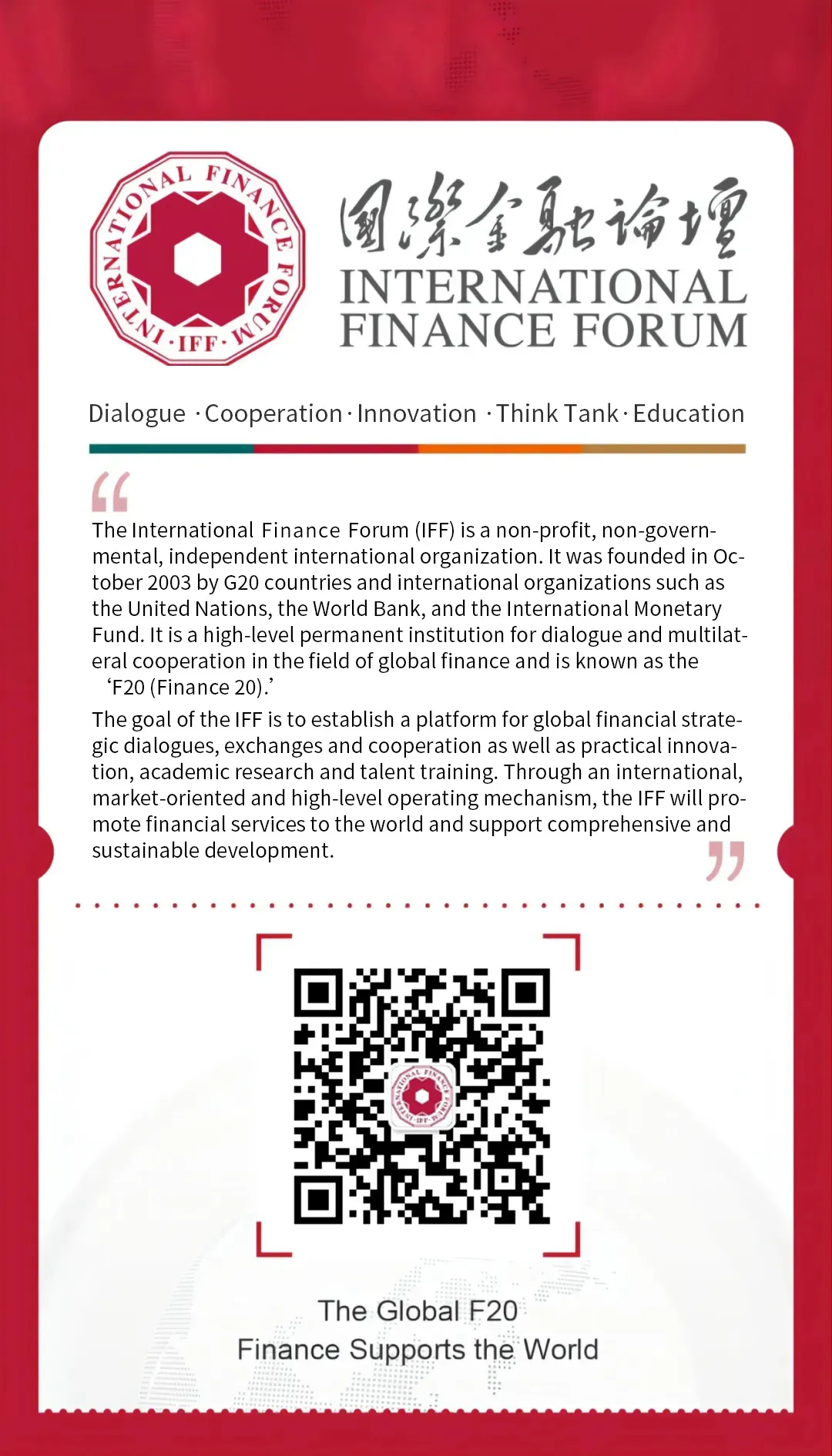HOME>NEWS CENTER>Newsletters
IFF Newsletter | Policy Split: China Eases, U.S. Falters
TIME:2025-05-08
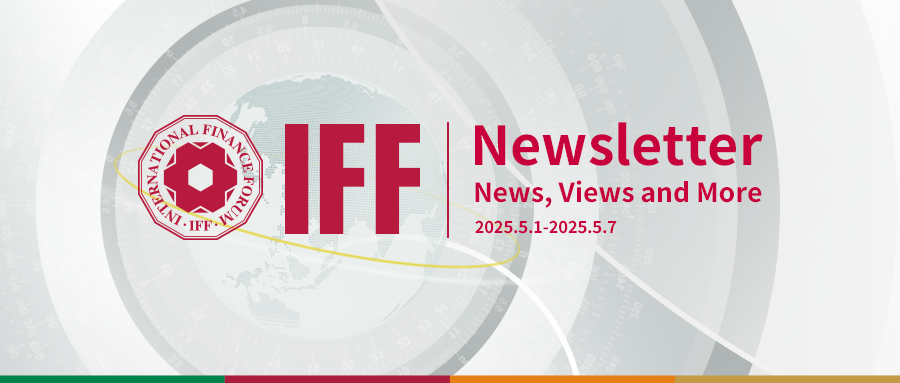
From the Editor
Chinese financial regulators issued a package of financial policies on May 7 to stabilize the market and expectations. Pan Gongsheng, Governor of the People's Bank of China, announced ten monetary policies, including reducing the reserve requirement ratio by 0.5 percentage points and lowering the policy interest rate by 0.1 percentage points.
At the same time, Li Yunze, Director of the National Financial Regulatory Administration of China, also said that eight favorable policies have been rolled out, covering areas such as real estate finance, small and micro enterprises, and the stability of foreign trade. Wu Qing, Chairman of the China Securities Regulatory Commission, stated that the CSRC will further introduce policy measures to deepen the reform of the Sci-tech Innovation Board and the Growth Enterprise Market, further enhancing the inclusiveness and adaptability of the system in aspects such as market levels, the review mechanism, and investor protection.
The US economy showed signs of weakness in the first quarter of 2025, shrinking for the first time in three years as gross domestic product fell at an annual rate of 0.3 percent in the January-March period. The contraction, reported by the Commerce Department on April 30, marked the first quarterly decline since 2022 and has intensified concerns about a potential recession in the world's largest economy.
While inflation showed some signs of cooling, with the Personal Consumption Expenditures (PCE) price index falling to 2.3% in March from February's 2.7%, price pressures remained elevated. The core PCE inflation, which excludes volatile food and energy prices, increased 2.6% year-over-year, still significantly above the Federal Reserve's 2% target rate, complicating the central bank's efforts to achieve a "soft landing" while taming inflation.
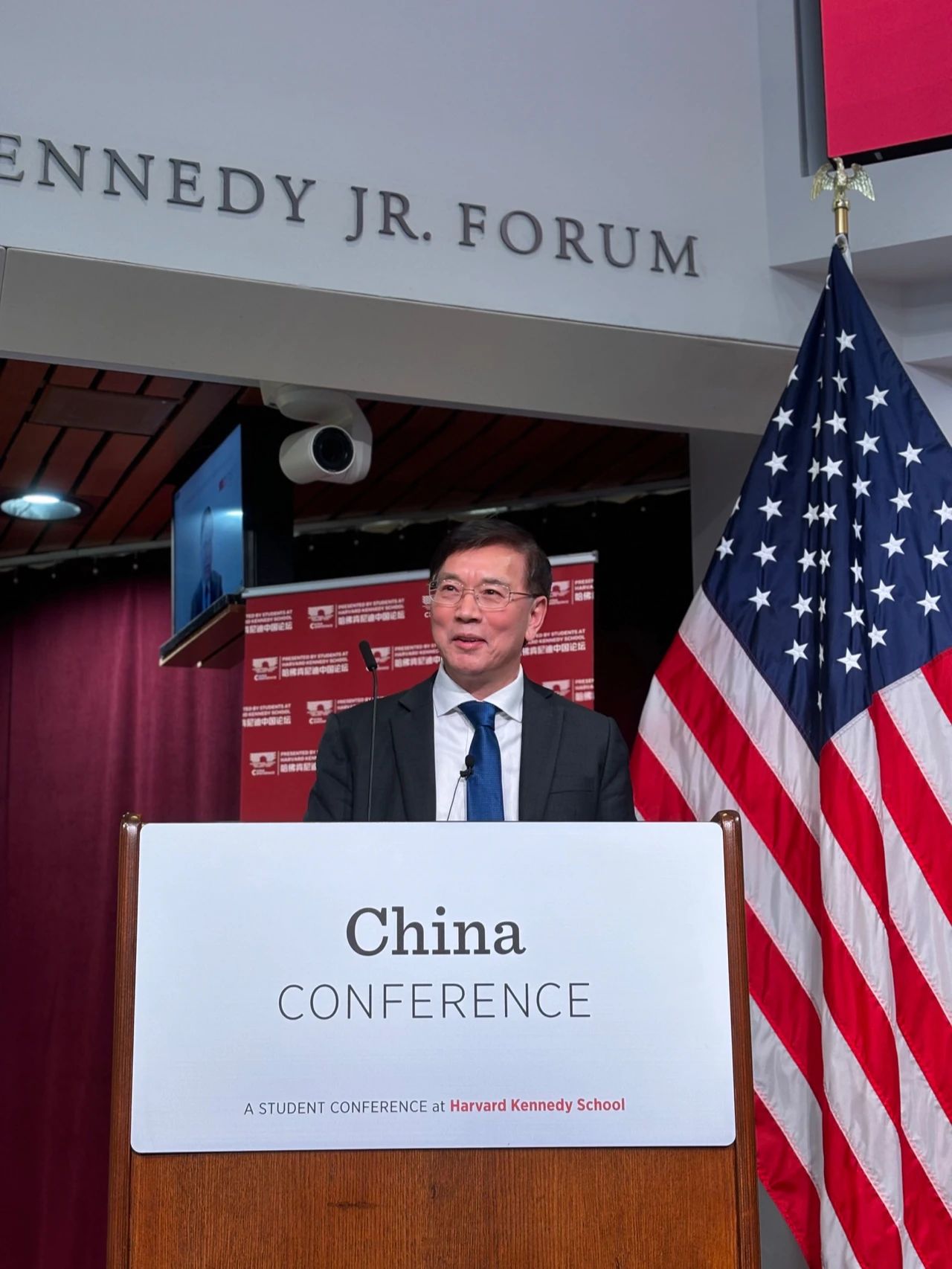
Lin Jianhai, Executive Vice President of the International Finance Forum (IFF) and former Secretary of the International Monetary Fund (IMF), was invited to attend the 2025 Harvard Kennedy School China Conference on April 26 (local time), where he delivered a keynote speech during the Opening Ceremony and U.S.-China Relations Plenary Session.
In his address, Mr. Lin offered an in-depth analysis of the current state and future prospects of U.S.-China relations. He emphasized that in an era of accelerating global transformation, the trajectory of U.S.-China relations—as a key pillar of the international system—will have a profound impact on the global order. He called on both sides to strengthen communication and cooperation in a constructive spirit, manage differences, and jointly safeguard the stability of the global economic and financial system.
Following his speech, Mr. Lin engaged in a lively and well-received discussion with other participants, generating a positive response from the audience.
Other distinguished guests at the session included David Firestein, President and CEO of the George H.W. Bush Foundation for U.S.-China Relations; Jin Xiaoming, former Director-General of the Department of International Cooperation at China’s Ministry of Science and Technology and Minister-Counselor at the Chinese Embassy in the U.S. (joining virtually); and Huang Kexin, a Master of Public Policy candidate at the Harvard Kennedy School.
This year’s Harvard Kennedy School China Conference was held under the theme “Designing the Future: Policy, Business, and the Power of Partnership,” with a focus on China’s global role and prospects for international cooperation in a time of global uncertainty. The event featured a series of thematic panels covering topics such as China-Latin America relations, U.S.-China trade, environmental and energy transitions, the real estate market, youth leadership, China’s future role in international organizations, and artificial intelligence and development. The conference brought together a distinguished lineup of policymakers, business leaders, and academics, and attracted enthusiastic participation from students across top institutions including Harvard, MIT, and Columbia University.
Mr. Lin's participation and keynote speech further underscored IFF’s active role in fostering international dialogue and promoting global cooperation. Looking ahead, the IFF will continue to strengthen collaboration with leading think tanks, universities, and international organizations, contributing ideas and insights to global policy discussions.
Chinese Regulators Unveil Major Financial Policy Package to Boost Market Confidence
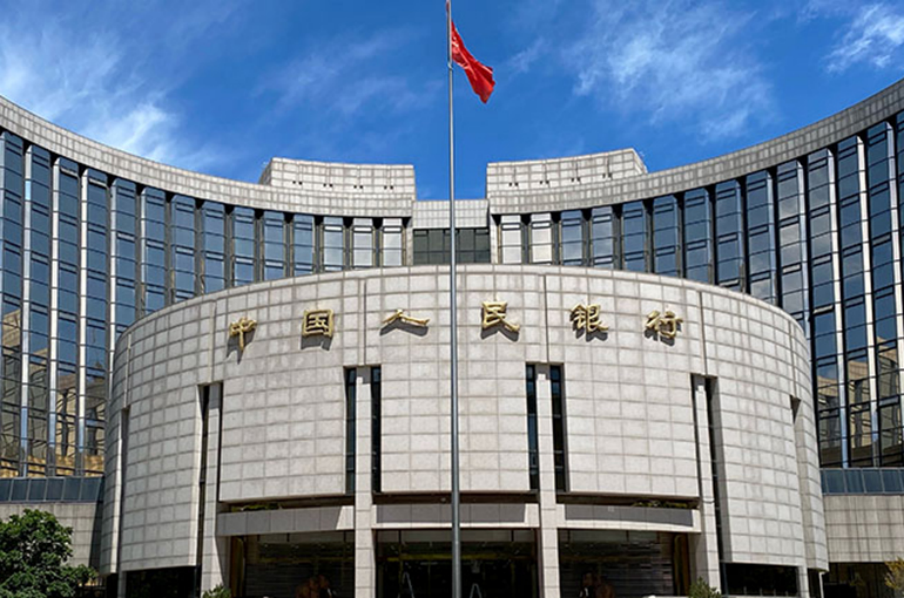
Chinese financial regulators announced a comprehensive package of monetary and financial policies on May 7, aimed at stabilizing markets and boosting economic growth.
The People's Bank of China (PBOC) will cut the reserve requirement ratio (RRR) by 50 basis points, injecting approximately 1 trillion yuan of long-term liquidity into the market, Governor Pan Gongsheng announced. The central bank will also lower its seven-day reverse repo rate by 10 basis points to 1.4% from 1.5%, which is expected to drive down the loan prime rate (LPR) by a similar margin.
In addition, the PBOC will reduce the interest rates of its structural monetary policy tools by 25 basis points. This includes cutting rates for specialized structural instruments and agriculture-related relending facilities from 1.75% to 1.5%, while the pledged supplementary lending (PSL) rate will be lowered from 2.25% to 2%.
The National Financial Regulatory Administration (NFRA) introduced eight supportive measures focusing on real estate financing, small businesses, and foreign trade stability. Li Yunze,director of the NFRA, said the regulator will accelerate the introduction of new financing mechanisms for the real estate sector and expand the pilot program for long-term insurance fund investments.
Meanwhile, China Securities Regulatory Commission (CSRC) Chairman Wu Qing revealed plans to reform the STAR Market and ChiNext Board, enhancing their inclusiveness and adaptability in terms of market tiers, review mechanisms, and investor protection. The CSRC will also revise regulations on major asset restructuring for listed companies and promote the development of tech-innovation bonds to provide comprehensive financial services for innovative enterprises.
The coordinated policy package represents one of the most significant attempts by Chinese regulators to shore up market confidence and support economic recovery in recent years.
California Open to Trade With China: State Governor
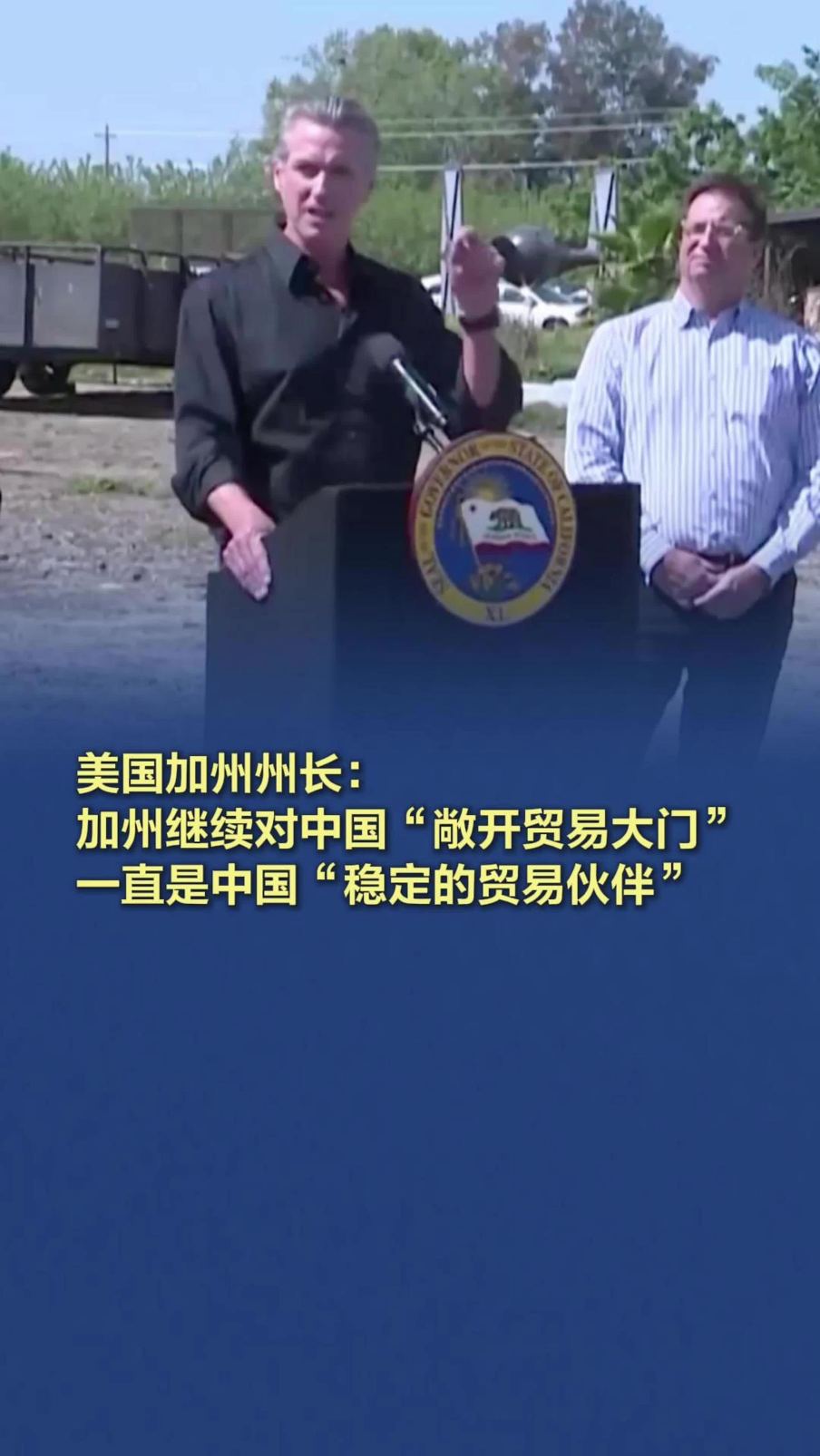
California Governor Gavin Newsom on May 2 said that the Golden State will remain open to trade with China as the current U.S. administration's tariff policy has threatened the largest state economy in the country.
Newsom said his state has been a "stable partner" in trade with China. He noted that California has signed a series of memorandums of understanding with China's provinces and municipalities and extended relations to China's national level during his visit to Beijing last year.
He stressed that California has "extended an open hand" to China and other trading partners, especially those in Asia.
Global trade is not a zero-sum game, said Newsom, adding that he recognizes "our interdependence."
China Sees 7.9 Pct Rise in Cross-regional Trips During May Day Holiday
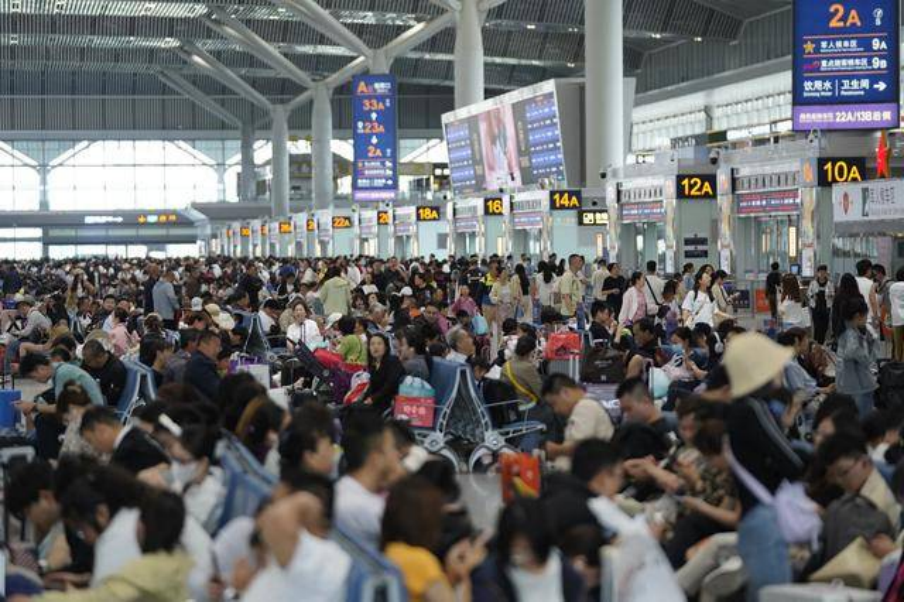
China saw a travel boom during the May Day holiday as demand for family visits, tourism and spring outings surged, official data showed on May 6.
Over the five-day holiday running from May 1 to 5, nearly 1.47 billion cross-regional trips were made nationwide, a year-on-year rise of 7.9 percent, the Ministry of Transport said.
The railway sector handled 101.7 million passenger trips during the holiday period, marking a 10.8 percent year-on-year growth. Civil aviation also saw strong performance, handling a total of 11.15 million trips, representing an 11.8-percent increase from the previous year.
Waterway transport demonstrated the most substantial growth at 23.8 percent with 8.61 million passenger trips made, while road travel dominated the holiday transportation landscape with 1.34 billion trips, or a 7.6-percent increase year on year.
China Passes New Law in Major Push to Bolster Private Sector

China's national lawmakers on April 30 voted to adopt the country's first fundamental law dedicated to promoting the private sector, underscoring support for a key part of the world's second-largest economy.
After over a year of legislative process, the private sector promotion law, passed at a session of the Standing Committee of the National People's Congress, will take effect on May 20, 2025.
The law stipulates that the promotion of the sustainable, healthy and high-quality development of the private economy is a significant and long-term policy of China.
From ensuring fair market access and financing support to enhancing services and protection of original innovation, the 78-article law cements efforts to encourage, support and guide the growth of the private sector.
Canton Fair Attracts Nearly 290,000 Overseas Buyers, Setting New Record

Almost 290,000 international buyers participated in this year's first round of the bi-annual Canton Fair in Guangzhou, a record-high number of attendees, Zhou Shanqing, director of the event's news center, said at a closing press conference on May 5.
The number of overseas buyers at the 21-day China Import and Export Fair, as it is officially known, jumped 17 percent from a year earlier to 288,938, Zhou said.
Most buyers were from emerging markets, with 187,450 coming from countries along the Belt and Road Initiative, a 17 percent increase on a year ago, Zhou noted. Those from European and North American countries reached 51,862, up 3 percent, Zhou added.
Intended export deals rose 3 percent to USD25.4 billion, with more than 60 percent from countries along the BRI, Zhou pointed out, adding that the number of exhibitors exceeded 30,000 for the first time. More than 4.5 million items were displayed onsite, including 1 million new products, 880,000 green low-carbon products, and 320,000 smart products, according to Zhou.
China's Factory Activity Drops in April After Two-Month Expansion, Official PMI Shows
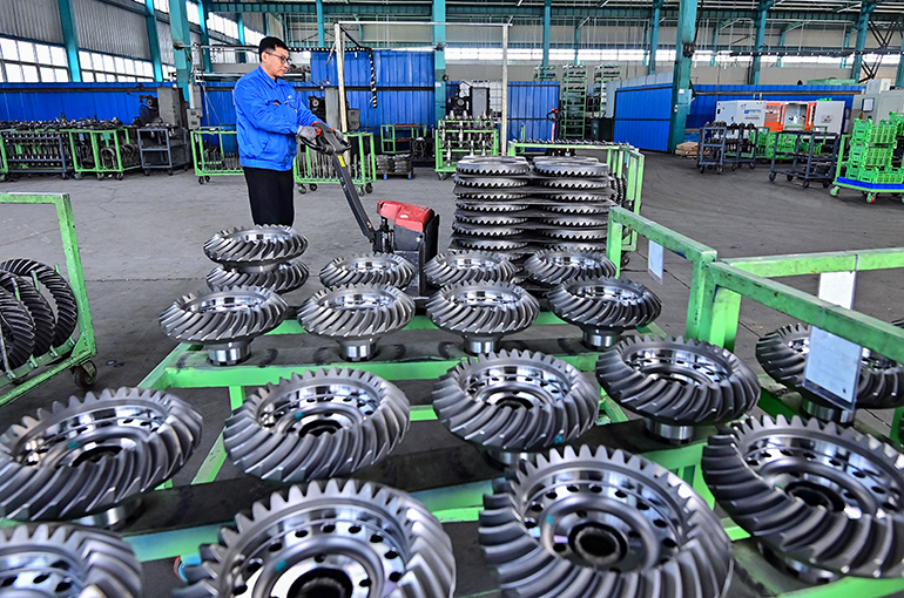
Activity in China's manufacturing sector contracted in April after two months of expansion, while the non-manufacturing activity continued to grow, according to data released by the National Bureau of Statistics on April 30.
The manufacturing purchasing managers' index came in at 49 this month, down from 50.5 in March and 50.2 in February, the data fromthe National Bureau of Statistics showed. A reading below 50 indicates contraction.
The non-manufacturing PMI fell to 50.4 in April from 50.8 in the previous month but stayed above the 50 mark, indicating that sectors other than manufacturing continued to expand.
Business activity in the service sector inched down to 50.1 from 50.3, while that in the construction sector fell to 51.9 from 53.4.
The composite PMI output index, which combines the production sub-index of the manufacturing PMI and the non-manufacturing PMI, fell to 50.2 this month from 51.4 in March, NBS said.
Newsletter
International News
Britain, India Agree Trade Deal
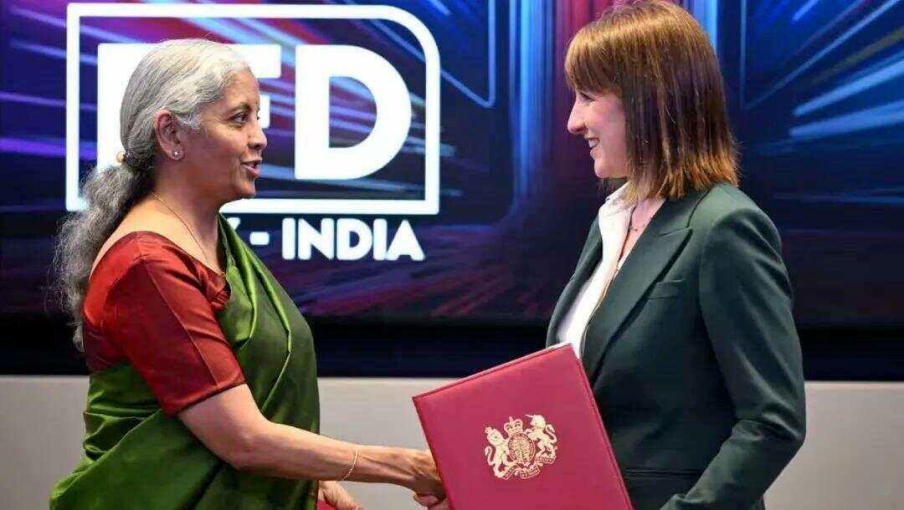
Britain and India have agreed a trade deal after years of on-and-off negotiations, according to a statement released by Downing Street on May 6.
Indian tariffs will be slashed, locking in reductions on 90 percent of tariff lines, with 85 percent of these becoming fully tariff-free within a decade, according to the statement.
Meanwhile, whisky and gin tariffs will be halved from 150 percent to 75 percent before reducing to 40 percent by year ten of the deal, while automotive tariffs will go from over 100 percent to 10 percent under a quota.
British Prime Minister Keir Starmer hailed the deal as a "landmark" in a post on social media X.
The deal is expected to increase bilateral trade by 25.5 billion pounds (34.12 billion U.S. dollars), and Britain's gross domestic product (GDP) by 4.8 billion pounds each year in the long run, according to the statement.
Eurozone Inflation Stable at 2.2 Pct in April
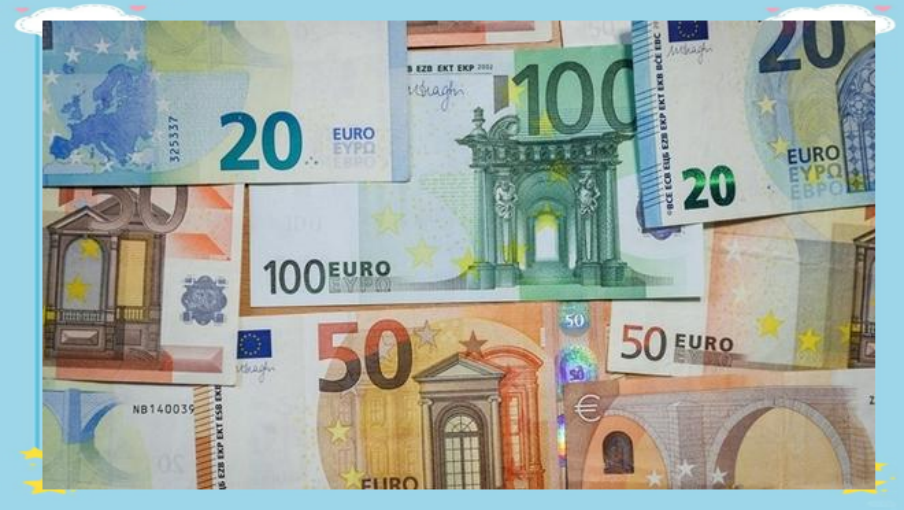
Annual inflation in the Eurozone is projected to hold steady at 2.2 percent in April, unchanged from March, according to a flash estimate released on May 2 by Eurostat.
The main driver of inflation remains the services sector, with prices rising to 3.9 percent in April, up from 3.5 percent the previous month. Inflation for food, alcohol, and tobacco also edged higher, reaching 3.0 percent compared to 2.9 percent in March.
The inflation rate for non-energy goods remained stable at 0.6 percent year-on-year, while energy prices saw a sharper decline, with inflation falling to -3.5 percent in April from -1.0 percent in March.
Among major Eurozone economies, Germany and Spain each reported an annual inflation rate of 2.2 percent, while France posted a significantly lower rate of 0.8 percent.
Eurozone GDP up by 0.4 Pct in Q1 2025 - Eurostat
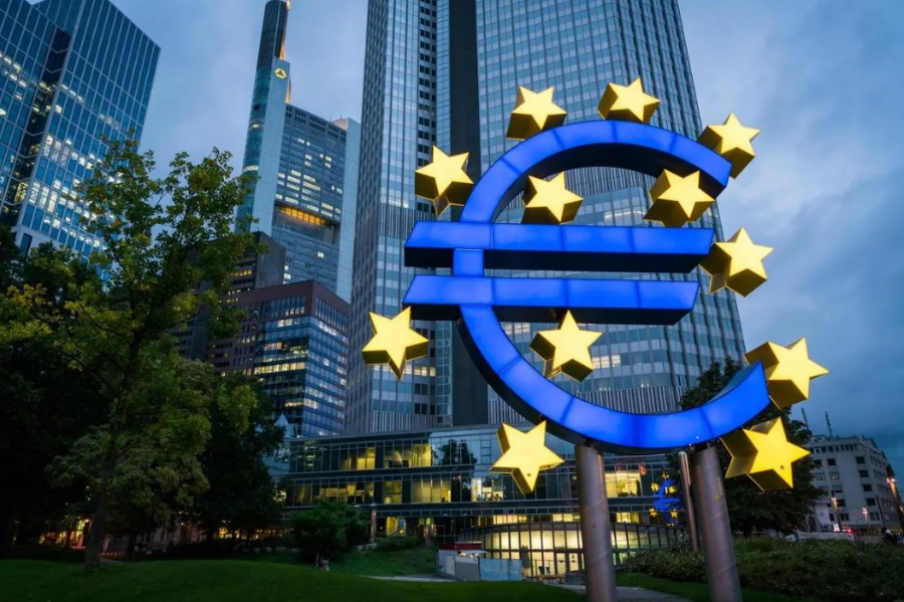
The Eurozone's gross domestic product (GDP) increased by 0.4 percent in the first quarter of 2025 compared to the previous quarter, according to a flash estimate published on April 30 by Eurostat.
The EU's statistical office also reported that the economy of the European Union (EU) grew by 0.3 percent during the same period, on a quarter-over-quarter basis.
In the fourth quarter of 2024, GDP had increased by 0.2 percent in the euro area and by 0.4 percent in the EU, according to Eurostat.
Year-on-year growth for Q1 2025 stands at 1.2 percent for the Eurozone and 1.4 percent for the EU.
Among the larger economies, Spain led with a 0.6 percent increase, while France and the Netherlands disappointed with only 0.1 percent growth. Germany recorded a 0.2 percent rise, and Italy exceeded expectations with a 0.3 percent expansion.
Trump to Impose 100 Pct Tariff on All Movies "Produced in Foreign Lands"

US President Donald Trump said on May 4 that he is authorizing to immediately begin the process of instituting a 100 percent tariff on all movies "produced in Foreign Lands."
In a post on his Truth Social platform, Trump wrote, "The Movie Industry in America is DYING a very fast death."
"Other Countries are offering all sorts of incentives to draw our filmmakers and studios away from the United States. Hollywood, and many other areas within the U.S.A., are being devastated," Trump said in the post, calling the situation "a National Security threat."
"Therefore, I am authorizing the Department of Commerce, and the United States Trade Representative, to immediately begin the process of instituting a 100 percent Tariff on any and all Movies coming into our Country that are produced in Foreign Lands. WE WANT MOVIES MADE IN AMERICA, AGAIN!" he added.
US Adds 177,000 Jobs in April as Federal Government Employment Continues to Decline

US employers added 177,000 jobs in April as federal government employment continues to decline, with the unemployment rate unchanged at 4.2 percent, the US Labor Department reported on May 2.
Total non-farm payroll employment increased by 177,000 in April, lower than the gain of 185,000 in March, according to the US Bureau of Labor Statistics.
Within government, federal government employment declined by 9,000 in April and is down by 26,000 since January, the report said.
As the Donald Trump administration continues to reduce the federal workforce, this data could be negatively impacted in the coming months.
In April, average hourly earnings for all employees on private non-farm payrolls rose by 6 cents, or 0.2 percent, to 36.06 dollars. Over the past 12 months, average hourly earnings have increased by 3.8 percent.
US GDP Contracts in Q1, Inflation Eases but Remains Above Target
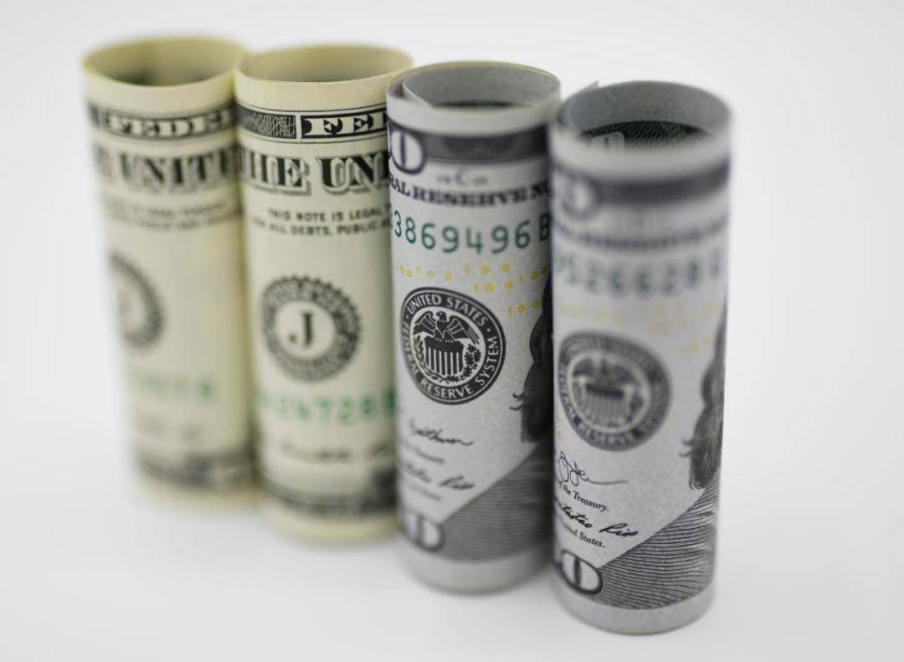
The US economy contracted in the first quarter of 2025, while inflation showed signs of easing but remained above the Federal Reserve's target, raising concerns about a potential recession, the Commerce Department reported on April 30.
US GDP shrankat an annual rate of 0.3 percent in the first quarter, marking the first quarterly decline in three years. Meanwhile, the Federal Reserve's preferred inflation gauge, the Personal Consumption Expenditures (PCE) price index, rose 2.3% in March, down from 2.7% in February, but the core PCE, excluding food and energy, increased 2.6% year-on-year, still higher than the Fed's 2% goal.
The first-quarter GDP decline was mainly driven by a surge in imports, which subtract from GDP calculations, and reduced government spending. However, growth in investment, consumer spending, and exports partially offset these drops.
Net exports dragged down GDP by 4.83 percentage points, the largest on record, suggesting companies stocked up amid tariff worries. Consumer spending, which makes up two-thirds of GDP, grew at a 1.8% pace, significantly slower than the 4.0% rate in Q4 2024, contributing 1.21 percentage points to GDP.
